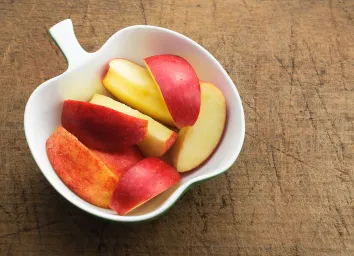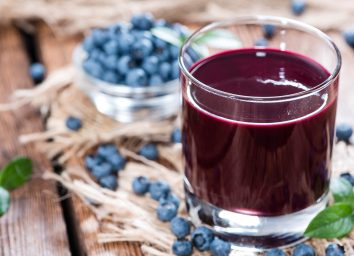What Happens to Your Body When You Drink Apple Juice
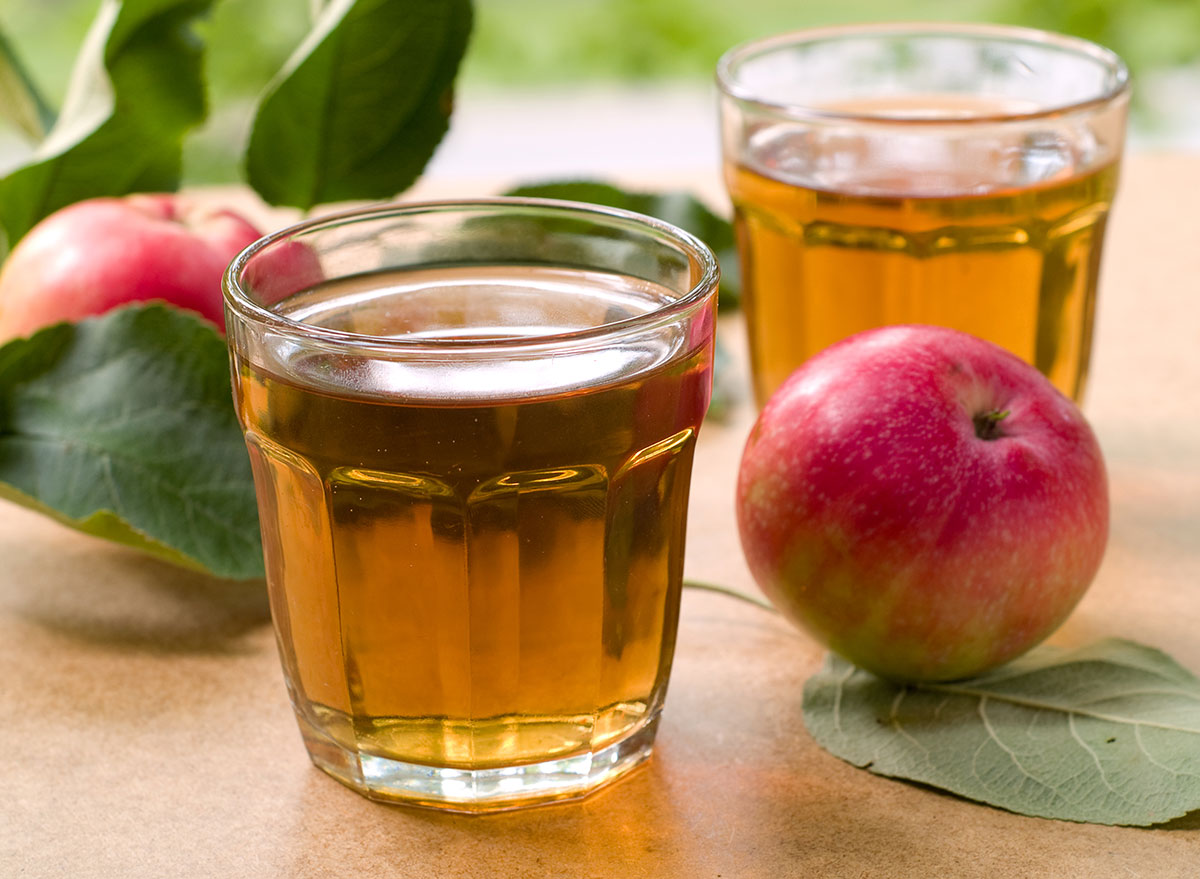
There’s something magical about that 4-inch tall cardboard box, with the detachable straw on the back and a cartoon apple on the front. To drink apple juice is a quintessential component of American childhood: for the first decade of life, it can be found everywhere from lunch boxes to birthday parties to school assemblies.
But, as we graduate far beyond fifth grade, is there any health benefit to continuing to consume the fruity juice? And, aside from the obvious convenience of passing around boxes of apple juice to kids, was it ever actually a nutritious component of our diet to begin with? We spoke to experts, looking for a definitive answer on what happens to your body when you drink apple juice. Here’s what we found, and for even more healthy tips, be sure to read up on The 7 Healthiest Foods to Eat Right Now.
When you drink apple juice, you will get nutrients.
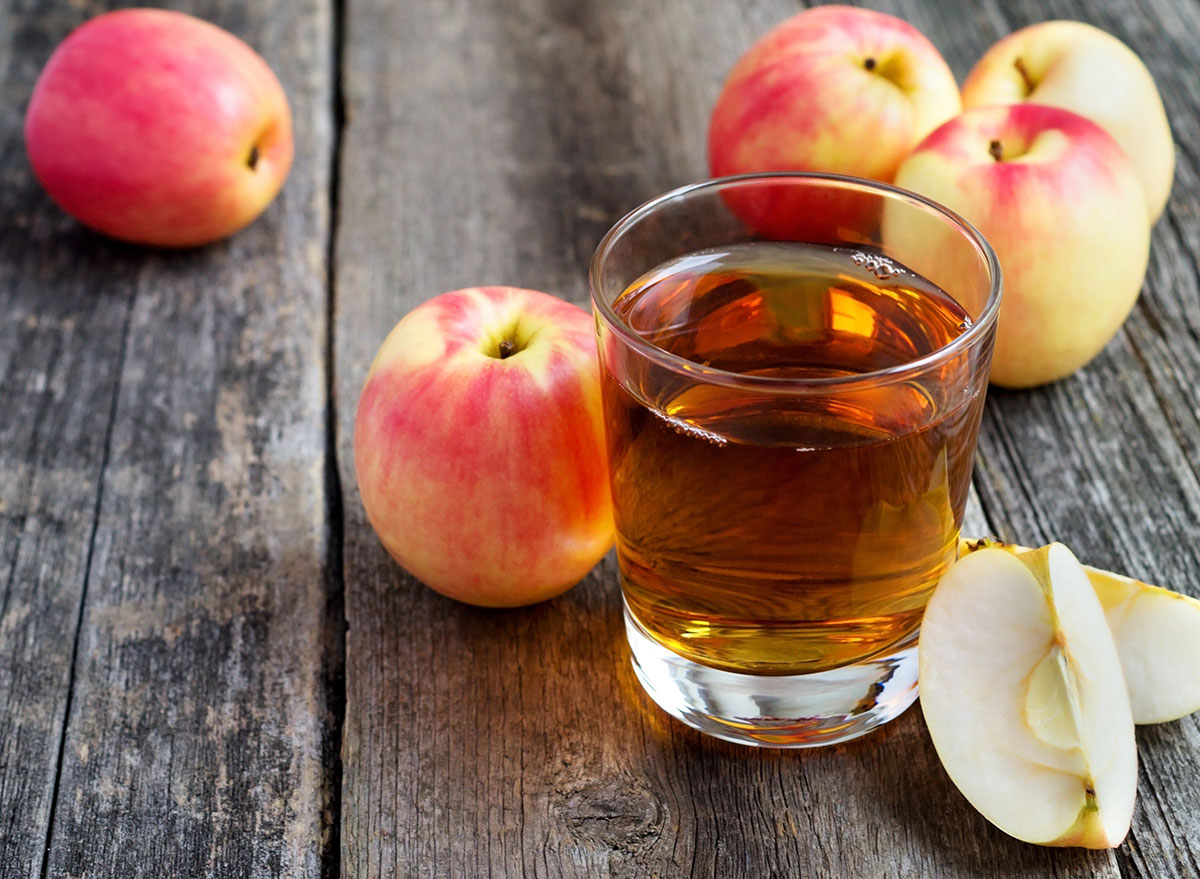
There’s no denying that, at its core, apple juice is sourced from just that: apples. The old saying goes, “an apple a day keeps the doctor away,” and while that doesn’t completely hold up for apple juice, it’s not untrue either.
“It is rich in potassium,” says Allison Gregg, RDN, LD/N and nutritional consultant at Mom Loves Best. “[It] acts as a vasodilator that can help reduce stress on blood vessels and decrease blood pressure. These two components contribute to reducing heart disease risk.”
Dr. Anam Umair, a registered dietitian with her Ph.D. in therapeutic diet and its pathophysiology, adds that “the oxidants in apples can prevent the lungs from oxidative damage,” and therefore, apple juice may help prevent asthma.
While apples have plenty of natural benefits, additives to apple juice can further increase its health value.
“Apple juice is typically fortified with Vitamin C,” explains RD Natalie Allen. “Drinking it is an easy and pleasant way to get the recommended dose of this necessary nutrient.”
Here’s What Taking Vitamin C Every Day Does to Your Body.
Your digestion could improve.
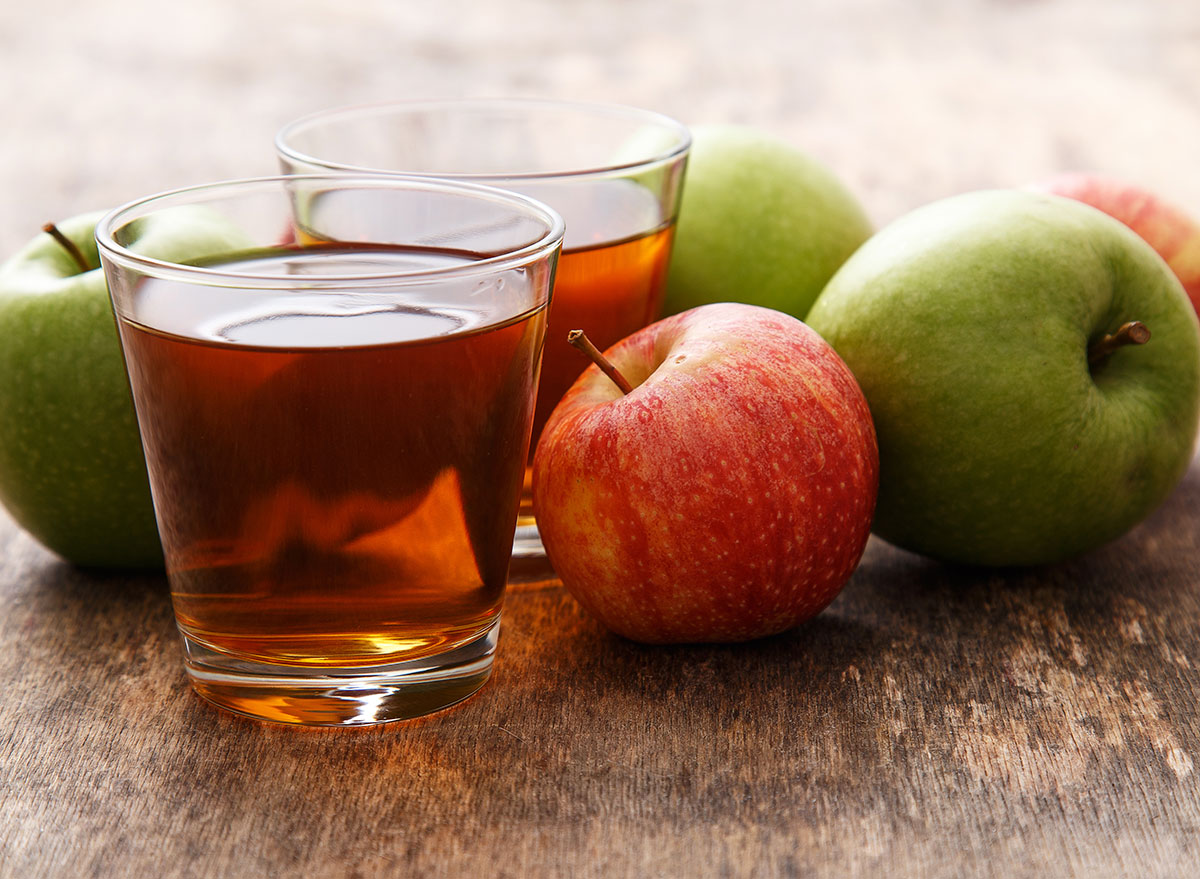
Apparently, apple juice is known to help children with constipation issues. The fructose and sorbitol in the juice are key, according to Allen and Umair. The only downside? The effect can go too far.
“Apple juice may cause diarrhea,” explains Gregg. “Its high sugar content may wreak havoc on your digestive system…your body is only capable of digesting a certain amount of fructose at one time. If too much is consumed, diarrhea can occur.”
Get even more healthy tips straight to your inbox by signing up for our newsletter!
You’ll crave more sugar.
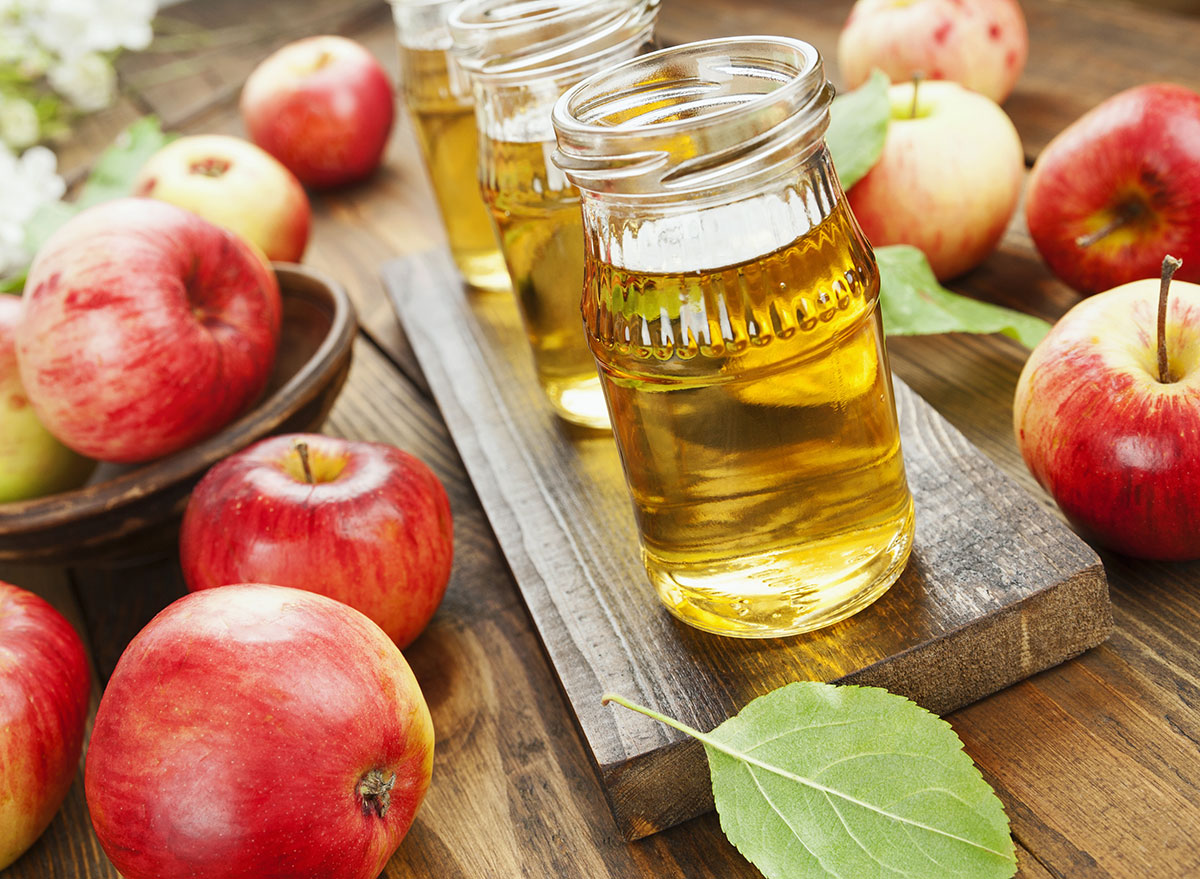
Here’s a staggering fact: according to Umair, packaged apple juice has more sugar in it than coke. So, if you’re avoiding soda out of concern about its sugar content, you might consider adding apple juice to the do-not-drink list as well—along with these Sugariest Juices on Grocery Store Shelves.
The thing about sugar, which we know from previous consultations with nutritionists like Sharon Katzman, is that once you have enough of it to raise your blood sugar, an automatic response is triggered in your brain and you crave more. After a cup of sugar-laden apple juice, for example, chances are you’ll be more likely to seek out other sweets.
It can lead to weight gain.
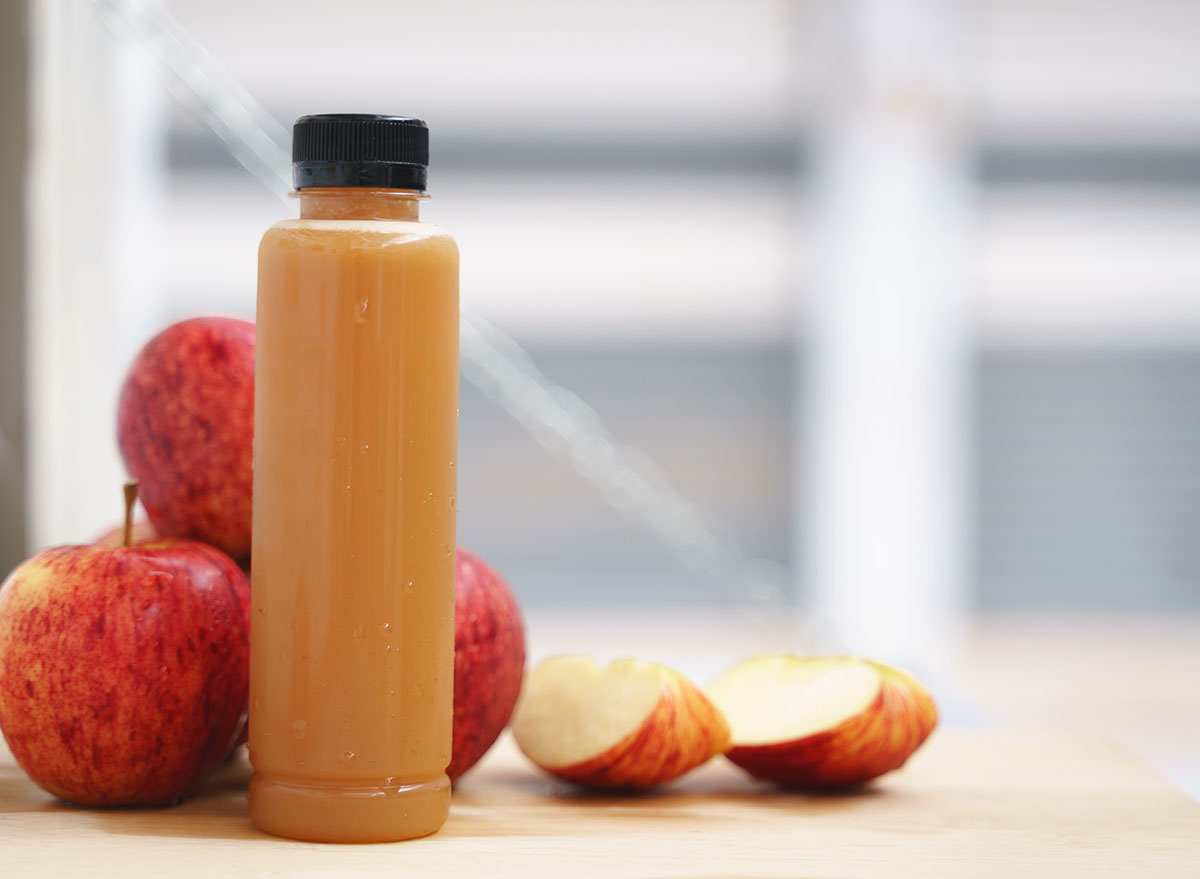
Dr. J. Salim, DMD, explains that the “matrix effect” is to blame for many of the health concerns that come when you drink apple juice. For those unfamiliar with this effect, it refers to the fact that fructose, the organic sugar found in fruit, naturally occurs within a matrix of fibers, minerals and vitamins.
“The existence of this matrix results in a slower release of fructose in the body because it is ‘trapped’ in a fibrous matrix,” says Salim.
But when the fruit is broken down—from an apple to apple juice, for example—the matrix is destroyed.
“Therefore, it is much better for us to eat the actual apple along with all its fibers than drink its juice, with much higher sugar concentration and a lot less fiber,” says Salim. “Drinking apple juice will cause a spike in our blood’s insulin level, which in turn stores a large portion of the caloric value of the juice as fat.”
Allen suggests watering down your apple juice to help negate these effects, as well as watching the serving size.
It could damage your teeth.

Another lesser-known fact about apple juice: it is a highly acidic beverage. According to Jin Lin, board-certified pediatric dentist and the owner of Hurst Pediatric Dentistry, that acidity level, in addition to the high sugar concentration (which makes the drink even more acidic!) is cause for concern when it comes to your teeth.
“Acid can be extremely harmful for our teeth,” says Lin. “In fact, the reason frequent consumption of sugar is bad for your teeth is that harmful bacteria consume sugars in your mouth and use them to produce a highly acidic waste product. When our teeth are exposed to acid, they lose minerals in a process known as demineralization. Over time, repeated ‘acid attacks’ can lead to cavities.”
If you still want all of the benefits when you drink apple juice, but don’t want the sugar, try eating an apple as a snack instead! Here are 11 Side Effects of Eating Apples Every Day.
